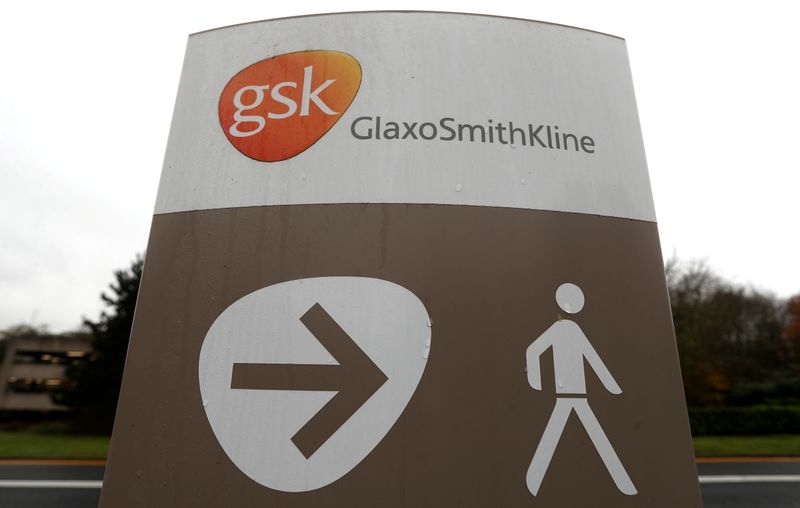(Reuters) -GSK said on Friday its anaemia drug for patients with kidney disease succeeded in late-stage trials, marking an important milestone for the British drugmaker as it bolsters its pipeline ahead of a split with its consumer healthcare venture.
The drug, daprodustat, improved haemoglobin levels in patients who had not received any standard care, and helped maintain the levels in those who did, results from five late stage studies by the company showed.
Daprodustat belongs to a new class of medicines that works by copying the body’s response to hypoxia, or low oxygen levels, and boosts production of red blood cells by mimicking the body’s response to high altitude.
A rival drug roxadustat, developed by AstraZeneca and Fibrogen, works just like GSK’s treatment. It won its first regulatory nod in China in late 2018, but a panel of U.S. experts voted against its approval on Thursday.
Anaemia is a condition in which the number of red blood cells, or haemoglobin concentration within them, is lower than normal, and can commonly affect patients with kidney disease.
GSK said studies showed also that daprodustat did not increase the risk of potentially deadly cardiovascular complications like heart attacks and strokes compared to standard treatment for anaemia associated with kidney disease.
The positive results come as a boost for CEO Emma Walmsley, whose strategy for the global company has been criticized by activist investor Elliott. Walmsley has made a string of leadership changes in a bid to boost GSK’s drug development success rate, where the group had fallen behind peers.
“We will continue to analyse the data … and look forward to working closely with regulators as we plan for our submissions,” GSK’s Chief Scientific Officer, Hal Barron said.
Daprodustat, approved only in Japan for use in patients with renal anaemia, was also well-tolerated in both dialysis and non-dialysis patients, GSK said.
Detailed results from the studies will be presented at a medical conference later this year, it added.
(Reporting by Yadarisa Shabong, Sachin Ravikumar and Pushkala Aripaka in Bengaluru; Editing by Rashmi Aich and Louise Heavens)

























